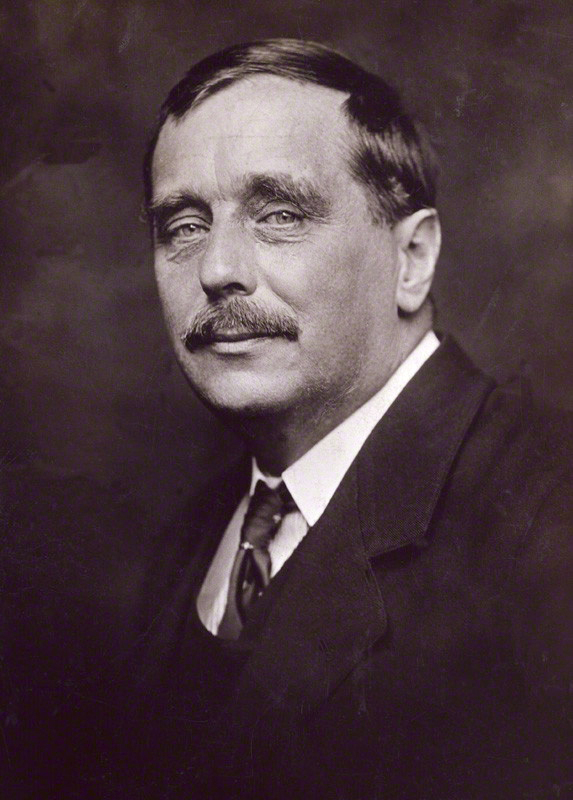H. G. Wells frasi celebri
da Sotto il bisturi; pp. 96-97
Racconti
H. G. Wells Frasi e Citazioni
lettera di Griffin: 1998, p. 171
L'uomo invisibile
Griffin: 1998, p. 160
L'uomo invisibile
“La stricnina è un tonico potente, Kemp, elimina ogni debolezza.
– È diabolica, – disse Kemp.”
È fuoco imbottigliato. (1998, p. 130)
L'uomo invisibile
Origine: Citato in Charlie Chaplin, La mia autobiografia, traduzione di Vincenzo Mantovani, Mondadori, 1964, p. 429.
Origine: Da A Modern Utopia, cap. IX, § 5; citato in Aa.Vv., Un gusto superiore: un modo nuovo di mangiare e di vivere, The Bhaktivedanta Book Trust Italia, 1992, pp. 23-24.
Griffin: 1998, p. 156
L'uomo invisibile
“Se non poniamo fine alla guerra, la guerra porrà fine a noi.”
Origine: Citato in Call of Duty 2 e all'inizio del videoclip This Is War dei 30 Seconds To Mars.
“Nel mondo c'è un mucchio di straordinari deficienti.”
Origine: L'uomo invisibile
H. G. Wells: Frasi in inglese
Origine: The Island of Doctor Moreau (1896), Ch. 16: How the Beast Folk Tasted Blood
“The Boss: You are not mechanics, you are warriors. You have been trained, not to think, but to do.”
Things to Come (1936)
“How small the vastest of human catastrophes may seem at a distance of a few million miles.”
"The Star", final line, first published in The Graphic, Christmas issue (1897)
“Our true nationality is mankind.”
Origine: The Outline of History (1920), Ch. 41
“For crude classifications and false generalisations are the curse of all organised human life.”
Origine: A Modern Utopia (1905), Ch. 10, sect. 1
Origine: The Island of Doctor Moreau (1896), Ch. 14: Doctor Moreau Explains
“Rowena: You’ve got the subtlety of a bullfrog.”
Things to Come (1936)
Origine: The Invisible Man (1897), Chapter 20: At the House In Great Portland Street
"What I Believe", The Listener, 1929. Quoted in Clifton Fadiman, I Believe, London, George Allen and Unwin, 1940.
The Rights of Man, or what are we fighting for? (1940)
“The uglier a man's legs are, the better he plays golf. It's almost a law.”
Bealby: A Holiday (1915)
Origine: The Island of Doctor Moreau (1896), Ch. 21: The Reversion of the Beast Folk
“An artist who theorizes about his work is no longer artist but critic.”
The Temptaion of Harringay (1929)
Book I, Ch. 7: How I Reached Home
The War of the Worlds (1898)
“Adapt or perish, now as ever, is Nature's inexorable imperative.”
The Mind at the End of its Tether (1945), p. 19
